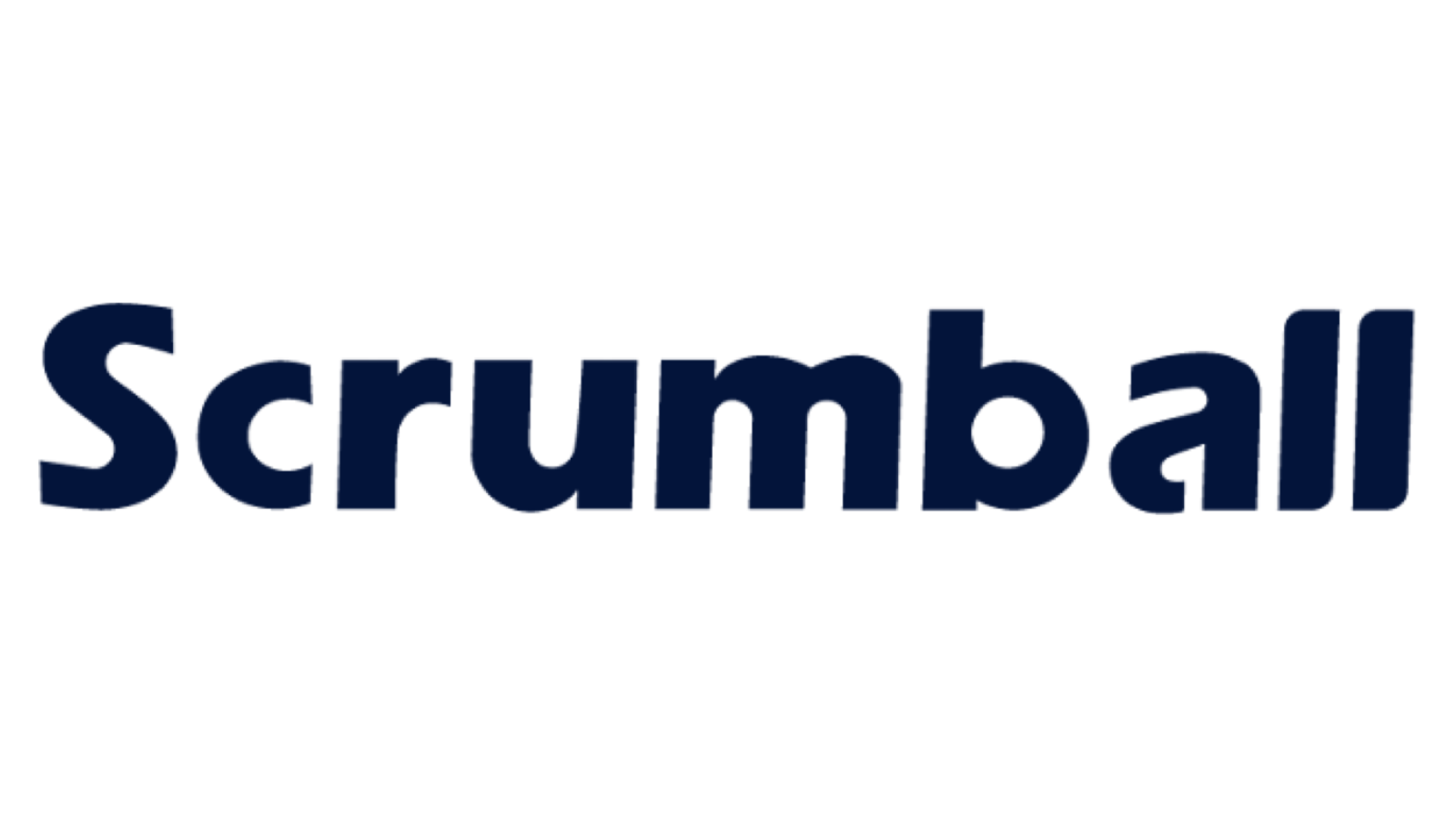Top Enterprise Marketing Automation Tools for 2025

Imagine having a tool that handles repetitive marketing tasks while you focus on growing your business. That’s the power of enterprise marketing automation. It simplifies workflows, boosts customer engagement, and delivers measurable results. By 2025, up to 90% of businesses are expected to adopt these tools, making them essential for staying competitive. They help you target customers effectively, manage leads, and optimize campaigns with real-time data. With automation, your enterprise can scale marketing efforts without stretching resources, ensuring you stay ahead in a fast-paced market.
What Are Marketing Automation Tools and Why Are They Important?
Definition of Marketing Automation Tools
Marketing automation tools are software solutions designed to simplify and enhance your marketing efforts. They help you automate repetitive tasks like email scheduling, social media posting, and campaign management. Unlike sales automation, which focuses on lead follow-ups and pipeline tracking, marketing automation tools focus on creating personalized campaigns, generating leads, and improving customer engagement. These tools allow you to deliver targeted messages across multiple channels, such as email, websites, and social media, ensuring your marketing strategy stays efficient and impactful.
Key Benefits for Enterprises
Streamlining Marketing Workflows
Imagine having a system that handles your routine tasks while you focus on strategy. Marketing automation software does just that. It automates processes like email marketing automation, lead nurturing, and social media scheduling. This saves time and ensures consistency in your campaigns. With automation, your team can focus on creating quality content and driving results.
Enhancing Customer Engagement
Personalized campaigns are the key to building strong relationships with your audience. Marketing automation tools help you deliver tailored messages that resonate with your customers. For example, email automation allows you to send personalized email campaigns based on user behavior, increasing engagement and loyalty. When customers feel understood, they’re more likely to stick around.
Improving ROI and Efficiency
Automation software solutions provide advanced analytics and reporting features. These tools give you real-time insights into campaign performance, helping you make data-driven decisions. By optimizing your strategies, you can improve ROI and achieve an increased conversion rate. Plus, automating repetitive tasks boosts productivity, allowing your team to focus on high-impact activities.
Trends Driving the Need for Marketing Automation in 2025
AI and Machine Learning Integration
AI is transforming b2b marketing automation. Did you know 41% of marketers reported increased sales after integrating AI into their campaigns? AI-powered tools like predictive analytics and customer journey automation tools help you anticipate customer needs and deliver relevant content. Platforms like Amazon use AI to personalize recommendations, driving a 35% increase in sales.
Personalization at Scale
Customers expect personalized experiences. In fact, 80% of consumers are more likely to buy when brands offer tailored interactions. With digital marketing automation platforms, you can analyze customer data and create automated campaigns that feel personal. For instance, a telecom company might promote higher data plans to users who exceed their limits, boosting customer lifetime value.
Data-Driven Decision-Making
Data is the backbone of modern marketing. Automation tools enable you to map customer journeys, segment audiences, and track performance. This helps you create strategies that resonate with your audience. For example, social media automation tools can analyze engagement metrics, helping you refine your approach and achieve better results.
Top Enterprise Marketing Automation Tools for 2025

HubSpot Marketing Hub
Key Features
HubSpot Marketing Hub offers a comprehensive suite of tools to streamline your marketing efforts.
- Manage contacts efficiently with its Smart CRM.
- Automate email marketing and social media management.
- Generate and nurture leads with ease.
- Access robust marketing analytics and automation capabilities.
- Score and grade leads to prioritize your outreach.
This platform integrates customer insights seamlessly, helping you create automated campaigns that resonate with your audience. It simplifies lead generation and ensures your marketing messages are always relevant.
Benefits for Enterprises
HubSpot stands out because it combines power with simplicity. You can manage all your marketing tools in one place, eliminating the need for multiple solutions. Enterprises using HubSpot report a 129% increase in leads and a 36% boost in deals closed within a year. Whether you're a small business or a large enterprise, this platform adapts to your needs, making it one of the best marketing automation tools available.
Why It Stands Out in 2025
HubSpot's focus on inbound marketing and its user-friendly interface make it a top choice. Its ability to automate campaigns and provide actionable insights ensures you stay ahead in the competitive landscape of b2b marketing automation.
Salesforce Marketing Cloud Account Engagement
Key Features
Salesforce Marketing Cloud Account Engagement is tailored for b2b enterprises with long sales cycles. It aligns marketing and sales efforts to nurture leads effectively. Unlike other tools, it focuses on considered purchases rather than transactional ones.
| Feature | Marketing Cloud Account Engagement | Other Marketing Tools |
|---|---|---|
| Target Audience | Primarily B2B with a focus on considered purchases and long sales cycles | Varies, often B2C with a focus on transactional purchases |
| Main Functionality | Aligns marketing and sales efforts to nurture leads | Often focuses on broad marketing strategies across channels |
Benefits for Enterprises
This platform excels at bridging the gap between marketing and sales. It helps you nurture leads through personalized campaigns and detailed analytics and reporting. By focusing on b2b marketing automation, it ensures your efforts are targeted and effective.
Why It Stands Out in 2025
Salesforce's ability to align marketing and sales makes it a standout choice. Its focus on b2b enterprises ensures you can handle complex customer journeys with ease.
Adobe Marketo Engage
Key Features
Adobe Marketo Engage is a powerhouse for customer journey automation tools. It offers:
- Advanced lead nurturing capabilities.
- AI-driven personalization at scale.
- Comprehensive analytics and reporting tools.
- Seamless integration with other Adobe products.
This platform empowers you to create automated campaigns that deliver personalized experiences across multiple channels.
Benefits for Enterprises
Marketo Engage helps you improve customer engagement and achieve an increased conversion rate. Its AI-driven features ensure your campaigns are always relevant and impactful.
Why It Stands Out in 2025
Marketo Engage's focus on personalization and its integration with Adobe's ecosystem make it a top choice. It enables you to deliver tailored experiences at scale, ensuring your marketing efforts drive results.
Microsoft Dynamics 365 Customer Insights
Key Features
Microsoft Dynamics 365 Customer Insights is a powerful platform that helps you unlock the full potential of your customer data. Here’s what makes it stand out:
- AI-powered automation through Microsoft Copilot simplifies the creation of complex customer journeys.
- Real-time insights and unified customer data enable you to craft personalized marketing strategies.
- Seamless integration between marketing and sales eliminates data silos, improving collaboration.
- Sales teams gain access to detailed customer profiles, helping them design targeted campaigns.
Benefits for Enterprises
This platform empowers you to deliver personalized experiences at scale. By unifying customer data, it ensures your marketing and sales teams work together seamlessly. You can create automated campaigns that resonate with your audience while saving time and resources. The AI-driven features also help you anticipate customer needs, boosting engagement and loyalty.
Why It Stands Out in 2025
Microsoft Dynamics 365 Customer Insights excels in b2b marketing automation by combining AI with real-time data. Its ability to unify data and enhance collaboration makes it one of the best marketing automation tools for enterprises looking to stay competitive in 2025.
Oracle Eloqua Marketing Automation
Key Features
Oracle Eloqua is a robust platform designed for enterprises aiming to excel in digital marketing automation platforms. Its standout features include:
- Dynamic customer segmentation based on real-time behavior.
- Multichannel campaigns across email, web, social, and mobile platforms.
- Advanced lead scoring models and automated lead nurturing programs.
- Comprehensive analytics with customizable dashboards and reports.
- Seamless integration with CRM systems and other Oracle products.
Benefits for Enterprises
With Oracle Eloqua, you can create cohesive campaigns that engage customers across multiple channels. The platform’s advanced lead nurturing capabilities ensure you’re targeting the right audience at the right time. Its detailed reporting tools provide insights into campaign performance, helping you optimize strategies and improve ROI.
Why It Stands Out in 2025
Oracle Eloqua’s ability to handle complex customer journeys and provide deep insights makes it a top choice for b2b enterprises. Its focus on multichannel marketing and robust integrations ensures you can deliver impactful campaigns in 2025.
Zoho CRM
Key Features
Zoho CRM combines marketing automation with customer relationship management, offering a comprehensive solution for enterprises. Here’s a quick look at its features:
| Feature | Description |
|---|---|
| Campaign Management | Helps marketing teams efficiently run campaigns and pass on quality leads to Sales. |
| Customer Segmentation | Segments customers based on region, requirements, and responsiveness for targeted marketing. |
| Lead Nurturing | Automates the sales process to nurture leads through their journey towards making a purchase. |
| Marketing Attribution | Measures ROI and effectiveness of campaigns in influencing purchasing decisions. |
| Google Ad Campaigns | Combines Google Ad spending with sales data to identify effective campaigns and keywords. |
| Event Management | Manages events and translates results into sales, tracking attendee interactions. |
| Email Campaigns | Engages leads with scheduled emails and tracks engagement metrics. |
| Survey Campaigns | Sends targeted surveys and tracks performance, converting responses into leads. |
Benefits for Enterprises
Zoho CRM simplifies campaign management and lead nurturing, making it easier for you to engage with your audience. Its marketing attribution tools help you measure ROI, ensuring your efforts are effective. The platform’s integration with Google Ads and event management features further enhance its value for enterprises.
Why It Stands Out in 2025
Zoho CRM’s ability to integrate marketing automation with CRM makes it a standout choice. Its focus on targeted marketing and lead nurturing ensures you can deliver personalized experiences while driving results.
ActiveCampaign
Key Features
ActiveCampaign offers a robust set of marketing automation tools designed to simplify your workflows and enhance your strategies. Here’s what makes it stand out:
- An intuitive drag-and-drop automation builder lets you create custom workflows quickly.
- A built-in CRM helps you manage contacts and track interactions seamlessly.
- High-level automation options allow you to set up behavior-triggered campaigns that boost engagement.
- Integration with platforms like Salesforce, Shopify, and Google Analytics enhances its versatility.
- Advanced personalization features ensure your campaigns resonate with your audience.
These features make ActiveCampaign a powerful platform for enterprises looking to streamline their marketing efforts and improve customer experiences.
Benefits for Enterprises
ActiveCampaign empowers you to take your b2b marketing automation to the next level. Its automation tools save time by handling repetitive tasks, so you can focus on strategy. The built-in CRM ensures your team stays organized, while the platform’s integration capabilities make it easy to connect with other systems you already use.
With its behavior-triggered campaigns, you can deliver personalized messages that drive conversions. The platform also provides detailed reporting, giving you insights into what’s working and where to improve. This helps you make data-driven decisions and maximize your ROI.
Why It Stands Out in 2025
ActiveCampaign’s ability to combine automation, personalization, and integration makes it a top choice for b2b enterprises in 2025. Its drag-and-drop builder simplifies complex workflows, while its CRM and reporting tools keep your team on track. By offering a comprehensive suite of features, this platform ensures you stay competitive in an ever-evolving market.
If you’re looking for marketing automation tools that deliver results, ActiveCampaign is worth considering.
How to Choose the Right Marketing Automation Platform
Scalability
Adapting to Business Growth
When choosing a marketing automation platform, scalability should be at the top of your checklist. As your business grows, your platform must keep up without breaking a sweat. Look for one with a robust infrastructure that can handle increasing workloads and user demands. Flexible campaign management is another must-have. You want to create and manage campaigns effortlessly, even as your audience expands.
Data integration is equally important. Your platform should handle the growing volume of data from your campaigns while integrating seamlessly with other tools. Advanced analytics and reporting features are also key. They help you track performance and make informed decisions as your business scales. Lastly, consider flexible pricing plans that grow with you. This ensures you’re not paying for features you don’t need upfront but can access them when the time comes.
Integration Capabilities
Compatibility with Existing Systems
Integration capabilities can make or break your marketing automation platform. A well-integrated platform simplifies workflows by automating data sharing between tools. This reduces manual tasks and minimizes errors. For example, syncing your CRM with your automation platform gives you a 360-degree view of your marketing efforts.
Integrations also ensure consistent messaging across all channels, which strengthens your brand. Imagine running a campaign where your email, social media, and website messaging align perfectly. That’s the power of integration. Plus, as your business grows, you can add new tools without disrupting your workflow. This flexibility makes integration a critical factor when evaluating platforms.
Ease of Use
User-Friendly Interfaces and Onboarding
A user-friendly marketing automation platform can save you a lot of headaches. Look for one with an intuitive interface that your team can navigate easily. Platforms like HubSpot and ActiveCampaign are known for their simple dashboards, which boost productivity.
Comprehensive training materials, such as tutorials and webinars, are also essential. They help your team get up to speed quickly. Responsive customer support is another feature to prioritize. It can make the onboarding process smoother and reduce the learning curve. A platform that’s easy to use ensures your team spends less time figuring out the software and more time creating impactful campaigns.
Pricing and ROI
Balancing Cost with Value
When choosing a marketing automation platform, you want to ensure it delivers value without breaking the bank. The good news? Marketing automation often pays for itself. On average, businesses see a return of $5.44 for every dollar spent within three years. Even better, many companies recoup their initial costs in under six months.
To maximize your ROI, focus on platforms that align with your goals. Look for early signs of success, like increased revenue, better customer engagement, and improved lead generation. These indicators show you're on the right track.
However, don’t overlook hidden costs. Onboarding, setup fees, and ongoing training can add up. Complex campaigns might require custom features, which can increase expenses. To avoid surprises, ask about these costs upfront.
Integrating your marketing automation platform with your CRM system is another smart move. This streamlines data flow, improves lead nurturing, and enhances your overall ROI. By choosing a platform that fits your needs and budget, you’ll see both short-term and long-term benefits.
Customer Support and Training
Importance of Reliable Support
Reliable customer support can make or break your experience with a marketing automation platform. Imagine running a critical campaign, and suddenly, something goes wrong. Without quick support, your efforts could stall, costing you time and money.
Good support ensures issues get resolved fast, keeping your campaigns on track. Look for platforms that offer 24/7 assistance, live chat, or dedicated account managers. These features can save you from unnecessary headaches.
Training is just as important. Tutorials, webinars, and detailed guides help your team master the platform quickly. When your team knows how to use the software effectively, you’ll get the most out of its features. A platform with strong support and training resources ensures you’re never left in the dark.
Benefits of Using Marketing Automation Software for Enterprises

Increased Efficiency
Marketing automation platforms are game-changers when it comes to efficiency. They take over repetitive tasks like email marketing automation, freeing up your team to focus on strategy and creativity. With automation, you can reduce operational costs by 25-30% and see a 14.5% boost in sales productivity. Companies using these tools for lead nurturing even report a staggering 451% increase in qualified leads.
Efficiency isn’t just about saving time. It’s also about doing more with less. Automated systems improve data management, helping you gather and analyze customer behavior effortlessly. This means faster campaign deployment and better performance. Imagine launching a campaign in minutes instead of days. That’s the power of automation. Plus, fewer manual tasks mean fewer errors, saving you money in the long run.
| Efficiency Gain | Description |
|---|---|
| Improved Data Management | Automated systems gather and analyze data for insights into customer behavior and campaign performance. |
| Increased Productivity | Automation allows employees to focus on strategic priorities, enhancing overall productivity. |
| Cost Efficiencies | Reduced manual intervention leads to significant cost savings and minimized human error. |
| Improved Campaign Performance | Real-time adjustments based on data insights enhance marketing ROI and customer engagement. |
| Faster Campaign Deployment | Rapid setup and launch of campaigns enable quick responses to market opportunities. |
Better Customer Insights
Understanding your customers is key to success, and marketing automation software makes this easier than ever. Automated segmentation helps you categorize leads based on their behavior, so you can engage them more effectively. Advanced analytics provide insights into campaign performance and customer preferences, helping you refine your strategies.
Lead management also gets a major upgrade. Automation tools score and sort leads automatically, letting you focus on high-quality prospects. This means you’re not just collecting data—you’re using it to build stronger relationships and drive better results.
Enhanced Personalization
Personalization isn’t just a nice-to-have anymore—it’s a must. Did you know 71% of consumers expect personalized interactions? When businesses fail to meet these expectations, 76% of customers feel frustrated. Marketing automation platforms help you deliver the tailored experiences your audience craves.
These tools analyze customer data to create campaigns that feel personal, whether it’s through targeted emails or customized offers. Fast-growing companies attribute 40% of their revenue to effective personalization strategies. By using automation to scale personalization, you can boost customer engagement and loyalty while driving revenue growth.
Improved Collaboration Across Teams
Marketing automation software doesn’t just streamline tasks—it also brings your teams closer together. When everyone works on the same marketing automation platform, communication improves, and processes become more efficient. You’ll notice fewer errors and faster campaign execution because everyone stays on the same page. For example, marketing and sales teams can share a unified view of customer data. This makes it easier to align strategies and focus on the same goals.
Imagine this: your sales team gets an automated notification when a lead is ready to convert. They can act immediately, knowing the lead has already been nurtured by your marketing team. This kind of seamless collaboration ensures no opportunities slip through the cracks. Plus, centralized workflows mean less back-and-forth between departments. Everyone knows what’s happening, when it’s happening, and who’s responsible.
By integrating sales tools into your marketing automation platform, you create a system where both teams work together effortlessly. This not only saves time but also boosts productivity. When your teams collaborate effectively, your business achieves better outcomes. It’s like having a well-oiled machine where every part works in harmony.
Measurable Results and ROI
One of the best things about using a marketing automation platform is how easy it becomes to measure success. You can track key metrics that show exactly how your campaigns are performing. For instance, the lead-to-customer ratio tells you how effective your lead nurturing efforts are. Conversion rates reveal how many visitors take the actions you want, like signing up for a newsletter or making a purchase.
You can also keep an eye on customer acquisition costs (CAC). This metric helps you understand how much you’re spending to gain new customers. Lowering this cost means your campaigns are becoming more efficient. Email marketing metrics, such as open rates and click-through rates, give you a clear picture of how well your messages resonate with your audience.
With detailed reporting features, you can make data-driven decisions to improve your strategies. You’ll know what’s working and what needs tweaking. This kind of insight ensures you get the most out of your marketing automation platform. Plus, when you see measurable results, it’s easier to justify your investment and plan for future growth.
Enterprise marketing automation tools are no longer optional—they’re essential for staying competitive in 2025. These platforms help you streamline workflows, engage customers, and achieve measurable results. But choosing the right tool for your business is just as important as using one.
To find the perfect fit, align the platform with your goals. Evaluate its features, pricing, and integration capabilities. Don’t forget to check user feedback and success stories. Trial periods or demos can also give you a hands-on feel for what works best.
Now’s the time to explore the tools we’ve covered. Take the first step toward automation and watch your enterprise thrive in the fast-paced digital landscape.
FAQ
What is the best marketing automation tool for small enterprises?
The best tool depends on your needs. For small enterprises, HubSpot Marketing Hub and ActiveCampaign are great options. They’re user-friendly and offer scalable features. Both platforms help you automate tasks and grow your business without overwhelming your team.
Can I integrate marketing automation tools with my existing CRM?
Yes, most platforms integrate seamlessly with popular CRMs like Salesforce, Zoho, and Microsoft Dynamics. Integration ensures smooth data sharing, better lead management, and consistent customer experiences. Always check compatibility before choosing a tool.
How much does marketing automation software cost?
Pricing varies widely. Some tools, like Zoho CRM, offer affordable plans for small businesses. Others, like Salesforce, cater to enterprises with higher budgets. Expect to pay anywhere from $50 to $2,000 monthly, depending on features and scale.
Do I need technical skills to use marketing automation tools?
Not necessarily! Many platforms, like HubSpot and ActiveCampaign, are designed for non-technical users. They offer drag-and-drop builders and tutorials. However, advanced features may require some training or support from your team.
How quickly can I see results with marketing automation?
Results depend on your strategy and goals. Many businesses notice improvements in lead generation and engagement within a few weeks. For ROI and long-term growth, it may take a few months of consistent use and optimization.
Tip: Start with small campaigns to learn the platform and refine your approach.
See Also
Essential Influencer Marketing Platforms For 2024 Success
Best Influencer Marketing Tools To Boost E-commerce Growth
Navigating Influencer Marketing Tools For Small Enterprises
Key Influencer Marketing Insights To Enhance Your Strategy
20 Crucial Influencer Marketing Statistics Every Marketer Needs
